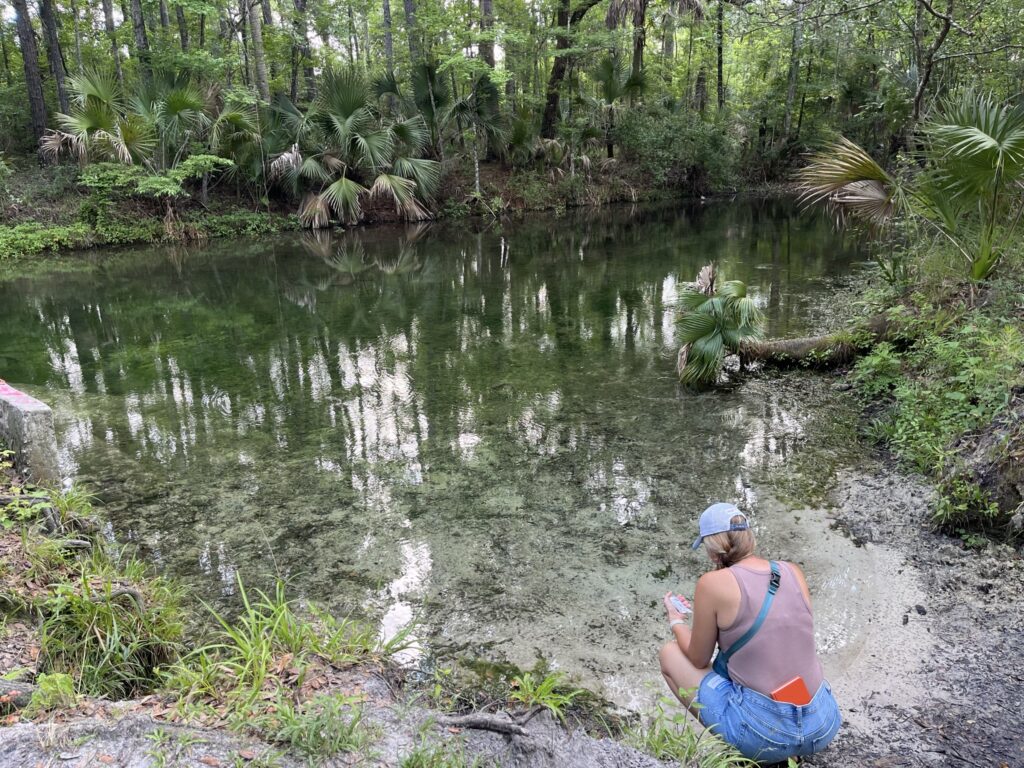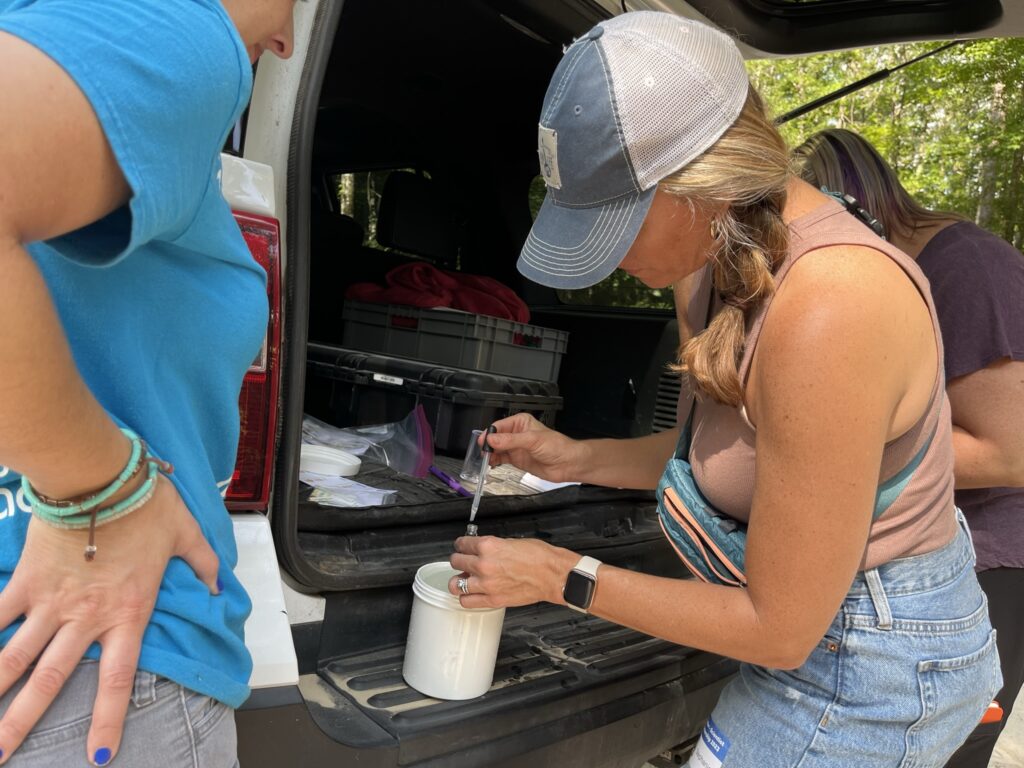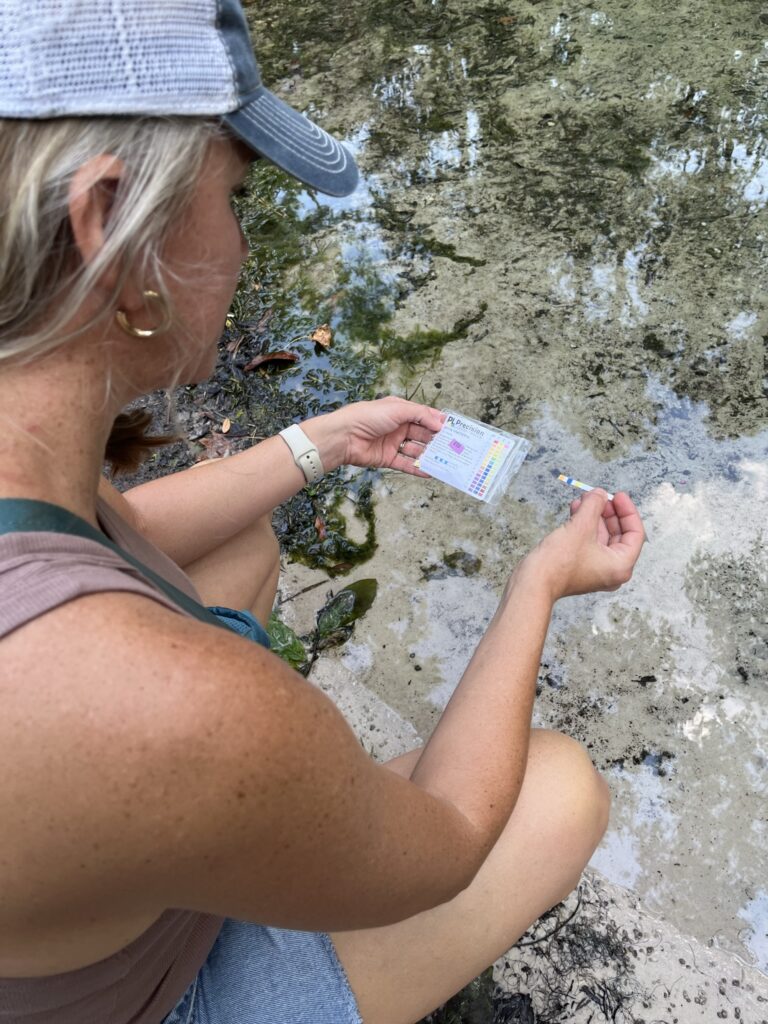
I have always felt more like a Teacher Scientist instead of a Science Teacher. Every summer I do some sort of professional development to help reinforce that approach to teaching and keep my skills fresh. In the summer of 2023, I attended a science teacher training at the Florida Geological Survey. This training was on my radar because I had previously reached out to Dr. Mabry Gabourdi Calhoun, the Outreach and Education Coordinator, about taking my daughter and a group of her friends on a field trip. Dr. Mabry is an amazing woman building a wonderful education outreach program at the FGS. I am always so impressed with female scientists who somehow manage to thrive in a male-dominated industry.
One of the things I loved about this training is that it reviewed some college-level science concepts with science teachers. This is important as most K-6 certified teachers, and even some middle-grade science teachers, did not get a lot of college-level science in college. Even though I took more math and science college courses than the average K-6 educator, I consider myself in the group that is also in need of science refreshers. My college degree is in Environmental Science, and in the world of science academia, it’s considered a “soft science”, because the advanced math and “hard science” classes required are less than say, a chemistry or physics major. Even if I had as much math and science as a Physics major, my brain is so forgetful, as a busy middle-aged woman, that I always need to review concepts even if I have learned them before. Although I sometimes feel less educated or less intelligent than the “real” science majors, I really loved the interdisciplinary classes I got to take as an Environmental Science major, like Environmental Ethics. Getting my master’s has been a dream of mine for about two decades, and I haven’t given up on it yet, but until then, I am so, so grateful for any chance I am given an opportunity to learn.
The other thing I loved about this training is that it included some field trips and fieldwork! While I briefly worked as an actual Environmental Scientist, my favorite days were fieldwork days. Well, except the field days (and some office days, to be honest) when I had to deal with some unwanted attention, oh, the joys of being a young female scientist in a male-dominated industry. Even so, I much prefer to work outside than inside. The field trip we took in this training was to a local sulfur spring. We reviewed how to take open water samples and easy water sample kits you can use with students.
The best part about this type of training is that you get an opportunity to feel like a scientist. Interacting with and getting to spend time with scientists is hugely important for science teachers. They need to understand how to teach scientific concepts, but they also need to understand what it means to be a working scientist, even if only for one day. Later when they are teaching a unit on the Nature of Science, connections can be made between the Scientific Method that is typically taught and how scientists are actually doing science. These summer training sessions give teachers an opportunity to expand our book knowledge with a lived experience of doing science, which will lead to better student engagement in the classroom.

